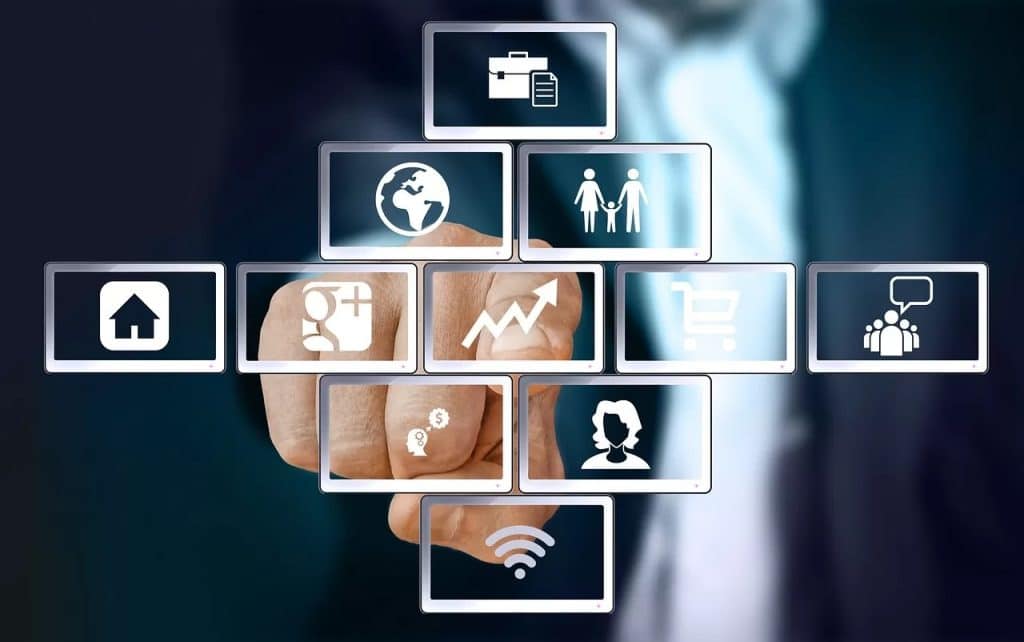Table of Contents
Introduction


In the digital age, the hotel industry has undergone a technological revolution, a significant transformation driven by the advancement of new technologies, almost a technological revolution. These developments have not only optimized internal processes but also enabled hotels to offer more personalized and efficient services, thereby enhancing guest experience. In Mallorca, a renowned tourist destination, implementing these innovations is crucial for maintaining competitiveness and service excellence. This article explores how the adoption of emerging technologies is redefining the hotel sector and raising service quality standards.
1. Automation of Processes 1.1 Reservations and Check-in/Check-out
Hotel Management Systems (PMS) such as Oracle Hospitality Suite and Opera PMS have revolutionized how hotels handle reservations and the check-in/check-out process. These platforms integrate crucial guest data, allowing for more efficient workflows and minimizing errors. Automating these tasks not only reduces waiting times for customers but also improves accuracy in billing and payments.
1.2 Invoicing and Payments
Digitalization of financial processes through automated systems facilitates electronic invoicing and payment management, improving administrative efficiency and reducing paper usage. This not only streamlines the invoicing process but also contributes to environmental sustainability, an aspect increasingly valued by customers.
2. Personalization of Experiences
2.1 CRM Systems and Data Analysis
Customer Relationship Management (CRM) systems like Salesforce and HubSpot enable hotels to collect and analyze detailed data on guest preferences. This information is used to personalize services and offers, creating unique experiences tailored to each customer. In a competitive market like Mallorca, this personalization can be a key differentiating factor.
2.2 Mobile Applications
Mobile applications such as Hilton Honors and Marriott Bonvoy allow guests to customize their stay from room selection to additional service requests. These apps not only enhance customer satisfaction but also foster loyalty by providing a direct and convenient channel to interact with the hotel.
3. Increased Operational Efficiency
3.1 Inventory and Supply Management
Automated inventory management systems help hotels maintain precise control over their stocks, avoiding both shortages and excess. This ensures a more efficient and profitable operation, enabling hotels to respond quickly to guest demands.
3.2 Staff Management
Optimized workforce planning through specific programs ensures sufficient staff availability during peak times. This not only improves operational efficiency but also ensures that guests receive quality attention at all times.
3.3 Feedback and Service Quality
Automated feedback systems, such as Medallia and ReviewPro, allow hotels to quickly identify areas for improvement in the services offered. By collecting and analyzing guest feedback, hotels can make timely adjustments and maintain high quality standards.
4. Enhanced Interaction and Communication
4.1 Chatbots and Virtual Assistants
Technologies like IBM Watson and ChatGPT offer instant responses to guest inquiries, improving communication and freeing up staff for more complex tasks. These virtual assistants can provide information about services, resolve queries, and manage basic requests, enhancing customer service efficiency.


4.2 Social Media and Review Platforms
Active management of social media and review platforms allows hotels to maintain direct communication with guests, manage online reputation, and respond promptly to feedback. This proactive interaction can increase customer satisfaction and attract new bookings.
5. Virtual and Augmented Reality
5.1 Virtual Experiences
Virtual reality allows guests to explore hotel facilities and services before their arrival, improving informed decision-making. This technology is particularly useful in the trip planning phase, offering an immersive experience that can positively influence hotel choice.
5.2 Remote Assistance
Augmented reality facilitates remote assistance by providing visual instructions in the room. This can include everything from how to use equipment to directions for navigating the hotel, enhancing guest experience and reducing the need for personal assistance.
Examples of Technologies and Their Role in the Hotel Industry
- Hotel Management Systems (PMS)
- Examples: Oracle Hospitality Suite, Opera PMS, Amadeus Hospitality.
- Function: Automation of operational tasks, integration of key guest information, improvement of efficiency in billing and payments.
- Online Reservation Systems
- Examples: Booking, Expedia, Airbnb.
- Function: Facilitate booking of rooms and additional services, offer personalized options, and increase hotel visibility.
- Guest Mobile Applications
- Examples: Hilton Honors, Marriott Bonvoy.
- Function: Enable online check-in, access to digital keys, request additional services, and personalize the stay.
- Customer Relationship Management (CRM) Systems
- Examples: Salesforce, HubSpot.
- Function: Collection and analysis of guest preference data, customization of services and offers.
- Artificial Intelligence (AI) and Chatbots
- Examples: IBM Watson, ChatGPT.
- Function: Quick responses to FAQs, facilitation of guest communication, anticipation of needs.
- Marketing Automation Systems
- Examples: Mailchimp, Marketo.
- Function: Sending personalized messages, improving guest loyalty and satisfaction.
- Quality Control and Feedback Systems
- Examples: Medallia, ReviewPro.
- Function: Collection of guest feedback, evaluation of hotel performance, continuous improvement.
- Virtual Reality (VR) and Augmented Reality (AR)
- Examples: VRXOne, HoloLens.
- Function: Provision of immersive experiences, visual remote assistance.
Conclusion
The integration of new technologies into the hotel industry is redefining service excellence, especially in competitive tourist destinations like Mallorca. Automating processes, personalizing experiences, increasing operational efficiency, and improving communication and interaction with guests are just some of the benefits these innovations bring.
For hotels, strategically adopting these technologies is not just a competitive advantage but a necessity to remain relevant in an ever-evolving market. By focusing on guest experience and optimizing internal operations, hotels can ensure a memorable stay for their customers and encourage loyalty. Ultimately, the future of hospitality lies in the ability to adapt to technological trends and leverage them to deliver exceptional service. Mallorca, with its rich tourist offerings, can lead this change, demonstrating that service excellence and technological innovation go hand in hand to create unparalleled guest experiences.




